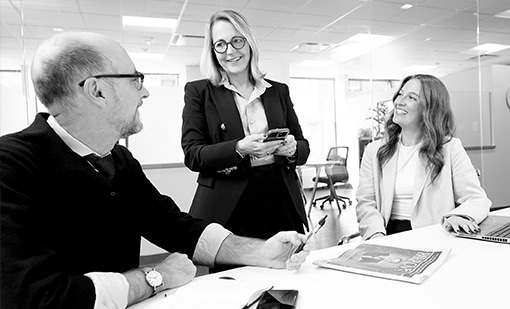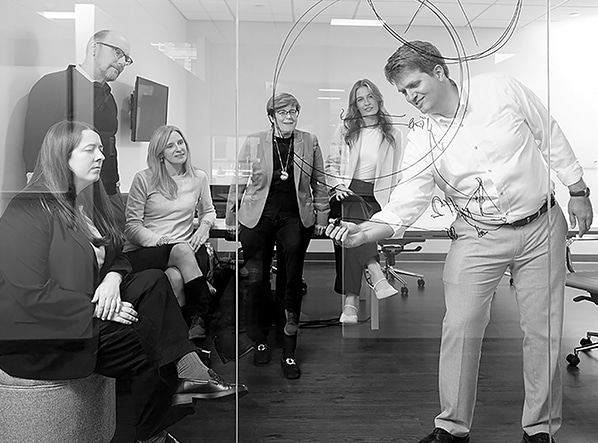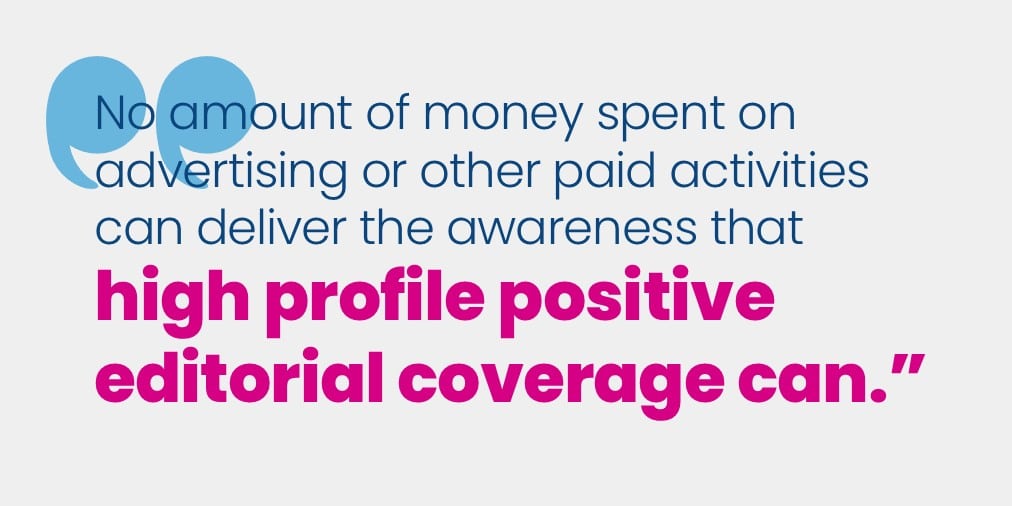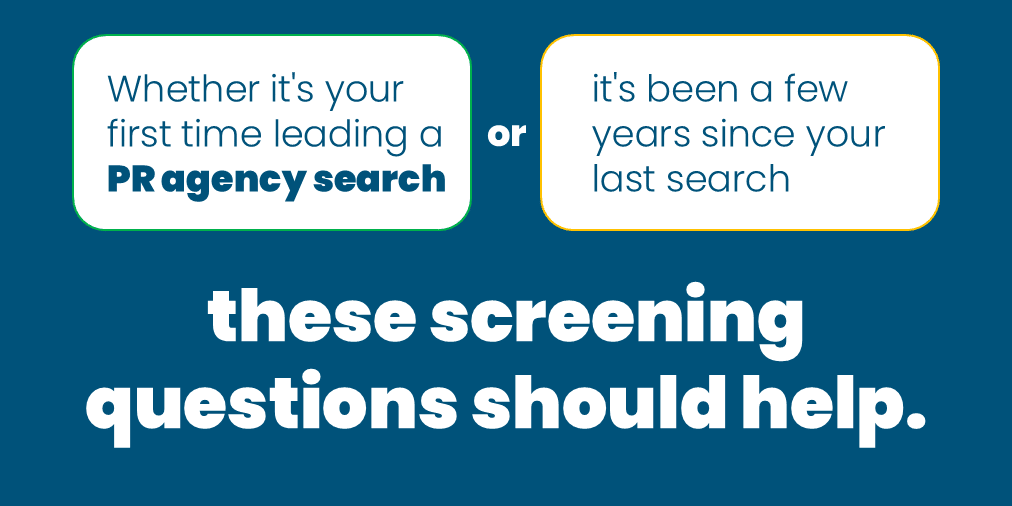Financial PR:
Your brand, skillfully elevated.
Building brand through PR requires partnering with an experienced agency with long-standing relationships and a deep knowledge of the investment business.
Our strategic PR support will take your communications to the next level. It starts with message development—what we call a message triangle—to help you connect with the audiences you want to reach. We identify your goals and build a plan that includes media relations to build meaningful relationships with journalists and earn high-value media coverage.
Our services also include: media and presentation training to prepare and accelerate the impact of your spokespeople, thought leadership to position your executives and investment professionals with compelling content and speaking opportunities, influencer outreach to expand your reach and credibility, and content placement to get your ideas in front of the right audiences.
We also support our clients with reputation management and crisis communications to protect and defend your reputation with swift, strategic communications management.
And our program includes measurement and analytics through custom reporting that captures progress and tracks the key KPIs that matter to you.

Since 2003, Lowe Group has taken a results-oriented approach to PR to help investment firms grow visibility and achieve results. We combine deep industry experience, meaningful media relationships, community connections and impeccable execution to help you earn the PR outcomes that get you further, faster.
Your frequently asked questions, answered.
What does FurtherFaster mean for Public Relations?
Can you help us with crisis communications?
How do you approach placing content with a publication?
Public Relations Philosophy
Deliver smart sources to media, on time, when they need them. A reporter friend once told us, “I know you can always help me find smart people for any story.” We don’t ascribe to the belief that “all press is good press.” When dealing with negative news, less can be more. Each situation requires crafting a thoughtful message and being purposeful and deliberate in determining if and when to share it.
Pricing Philosophy
As media relations requires always being “on” and available for media and clients, it is hard to track our work hourly. That said, we do seek to project a client’s scope of work, estimate the amount of time we will need to complete it, and identify a retainer that reflects the time commitment we believe is necessary to achieve the objective. If the scope of work changes or we find that our time commitment needs to increase or decrease, we revisit the retainer.
Reputation Management and Crisis Communications.
In financial services, trust is everything. When your firm faces a crisis, how you communicate with your key stakeholders can make the difference between a minor blip and a major disaster.
Lowe Group acts as a trusted communications advisor to clients facing legal or regulatory action or other sensitive matters such as mergers and acquisitions, divestitures, restructurings, data breaches or changes in senior personnel. We work with company leaders, compliance teams and attorneys to develop communication strategies that ensure the appropriate message is delivered to internal and external stakeholders to protect your reputation…and bottom line.
The Lowe Group has helped numerous firms navigate delicate and challenging news. Our strategic thinking and experience help you manage through a crisis with confidence. We also help you rebuild trust in the aftermath, limiting the long-term impact and helping you get back to normal.

Public Relations FurtherFaster Proofpoints.
Background
Lowe Group began working with the fixed income asset management division of a large financial services firm in 2005. The division then managed less than $5 billion and today the firm manages more than $160 billion.
Scope of work
Lowe Group helped elevate messaging around the client’s “core of the core” high quality fixed income track record. We developed a targeted strategy to get the team in front of institutional and intermediary audiences. Our efforts included helping to coordinate the firm’s reengagement and communications with Morningstar, an important rating firm covering mutual funds. We helped craft and share the firm’s annual outlook and pitched stories about the firm’s highly successful taxable and tax-exempt bond strategies. We also helped elevate the topic of the team’s diversity in a white male-dominated industry.
Outcome
The client was profiled in Barron’s, Fortune, Pensions & Investments, and FA Magazine and is regularly covered in key media outlets such as the Wall Street Journal, New York Times, CNBC, Kiplinger’s, Bloomberg and others.
Lowe Group helped the team promote recognition for the firm’s CIO as Morningstar’s Outstanding Portfolio Manager, P&I’s Influential Women in Institutional Investing and Barron’s Most Powerful Women in Finance.
Background
After leading a firm for more than 30 years with a pristine reputation, the founder of a financial advisory firm found his firm dealing with an SEC complaint in which he was personally named. The firm needed help communicating with clients, employees and the community, and a plan to recover its reputation.
Scope of work
Lowe Group gathered information and worked closely with a small group of the firm’s leaders and outside legal counsel to craft a message about the regulatory matter and put it into context. We identified the firm’s stakeholders including its owners and board, employees, clients and key vendors/partners. We prepared a timeline and communications plan that identified when and how each constituency would be contacted and helped craft communications materials. We also prepared a strategy to respond to media inquiries.
Outcome
The firm briefed its staff and when the SEC settlement was finally announced, the team proactively reached out to clients. While the firm was expecting broad media attention, the firm only a few inquiries and released a written comment. We worked with the firm to try to offset negative news with placed content and other strategies to eventually push down negative news. The firm was well prepared to answer client questions and did not lose any clients.
Background
A serial entrepreneur began a new venture to change the way consumers buy annuities. The company’s innovative platform offers commission-free insurance products to RIAs and consumers. The firm’s technology is disrupting the traditional insurance model that relies heavily on commission-based salespeople.
Scope of work
Lowe Group helped the team focus its message, announce the platform’s launch and raise awareness of the founder as a disrupter and thought leader in the RIA and insurance space. We released milestone news as the firm steadily grew, adding both advisory firms and carrier partners to its platform.
We shared RIA surveys gathering their perceptions on retirement planning and annuities and held well attended media roundtables to change media attitudes and correct misperceptions. We positioned well-known academics as product experts to support the broader story and enlisted a group of advisors to discuss how they used the platform and technology.
We also helped announce private equity investments in the firm from leading family office and strategic investors.
Outcome
The platform today touches more than 10,000 advisors from more than 1,200 firms and is the main technology on several leading advisor platforms including SS&C, Orion and Envestnet.
The Lowe Group secured coverage for the firm in RIA industry publications including RIA Biz, Financial Planning, Investment News, ThinkAdvisor, Financial Advisor IQ and others. We coordinated interviews with the founder for features in the Wall Street Journal, New York Times, Barron’s, Bloomberg, Kiplinger and others and scheduled the founder as a guest on financial podcasts and as a speaker at advisor conferences.
We placed several articles in industry publications and applied for and earned the firm recognition with awards from Wealth Management, ThinkAdvisor and Investment News.
Lowe Group has been our partner for more than a decade. Their deep asset management and financial services experience and longstanding media relationships have led to important outcomes for Baird. They are a key part of our team.
ANGELA PITTMAN TAYLOR, SENIOR VICE PRESIDENT, ROBERT W. BAIRD & CO.
Read our latest insights on Public Relations.
Morningstar conference regains its mojo
Last year’s kinks worked out, MICUS 2025 delivered good energy, presenters and Exhibit hall.
Earned media: The PR workhorse of visibility for ETFs, other investment products and services
Key takeaways: Earned media includes coverage or attention your firm gets that is not paid Research shows earned media is viewed as more credible than…
How to hire the right financial PR firm: 7 critical questions for asset managers to ask
Experience, media relationships, familiarity with compliance, tight collaboration with digital marketing all matter most.


